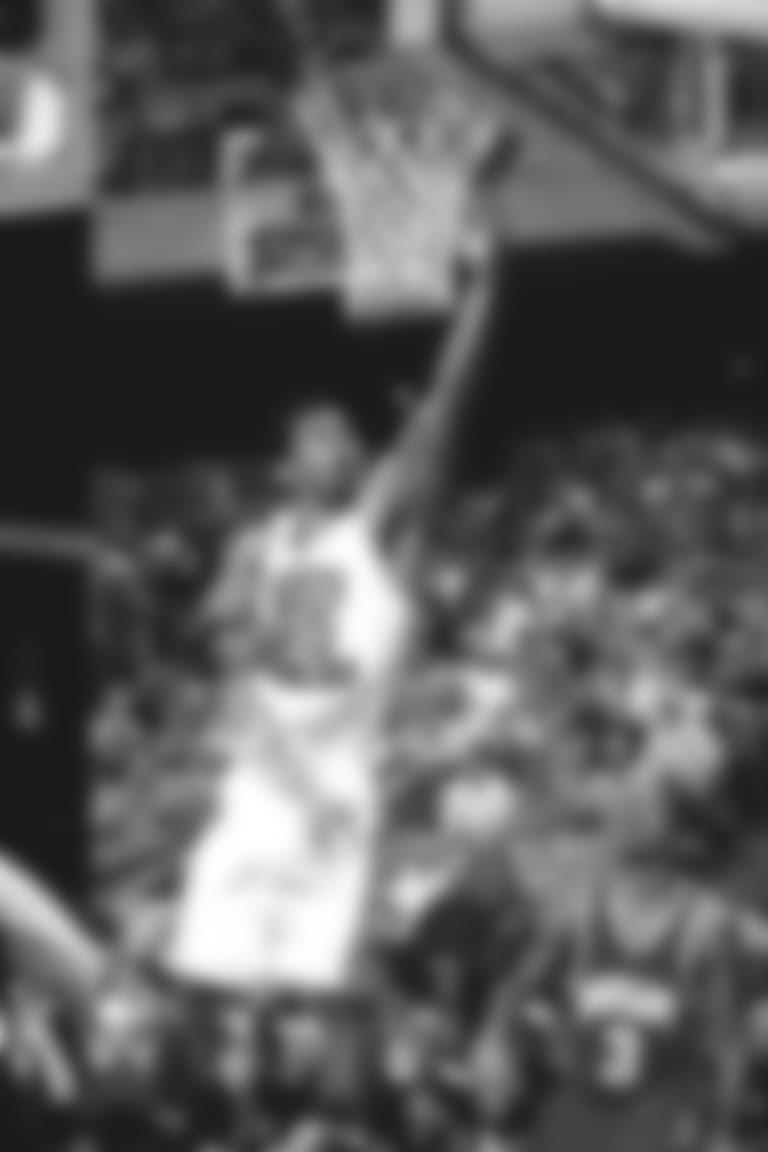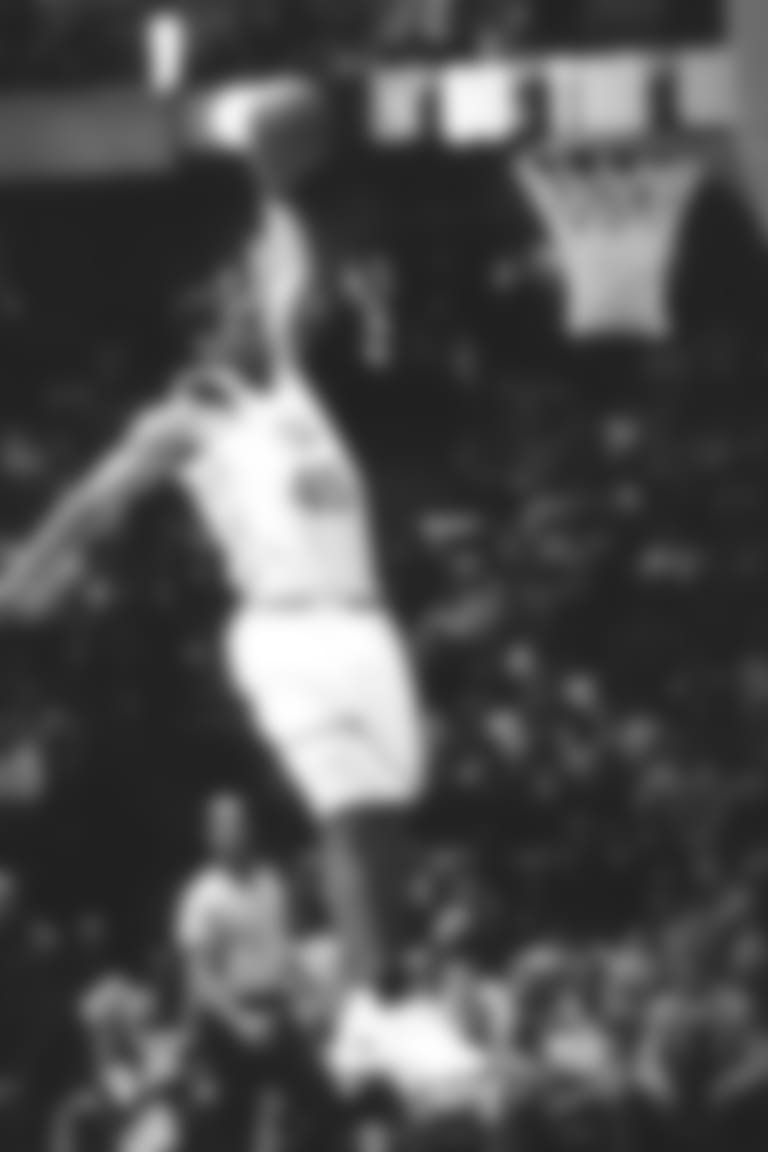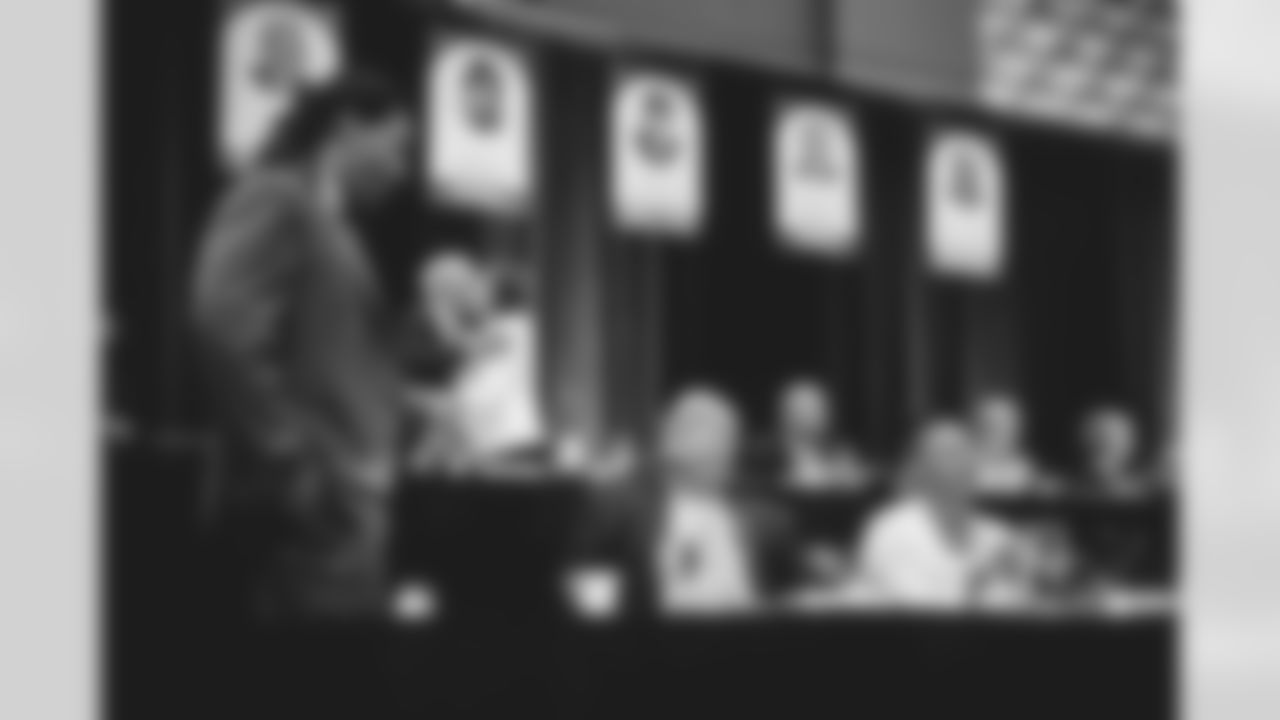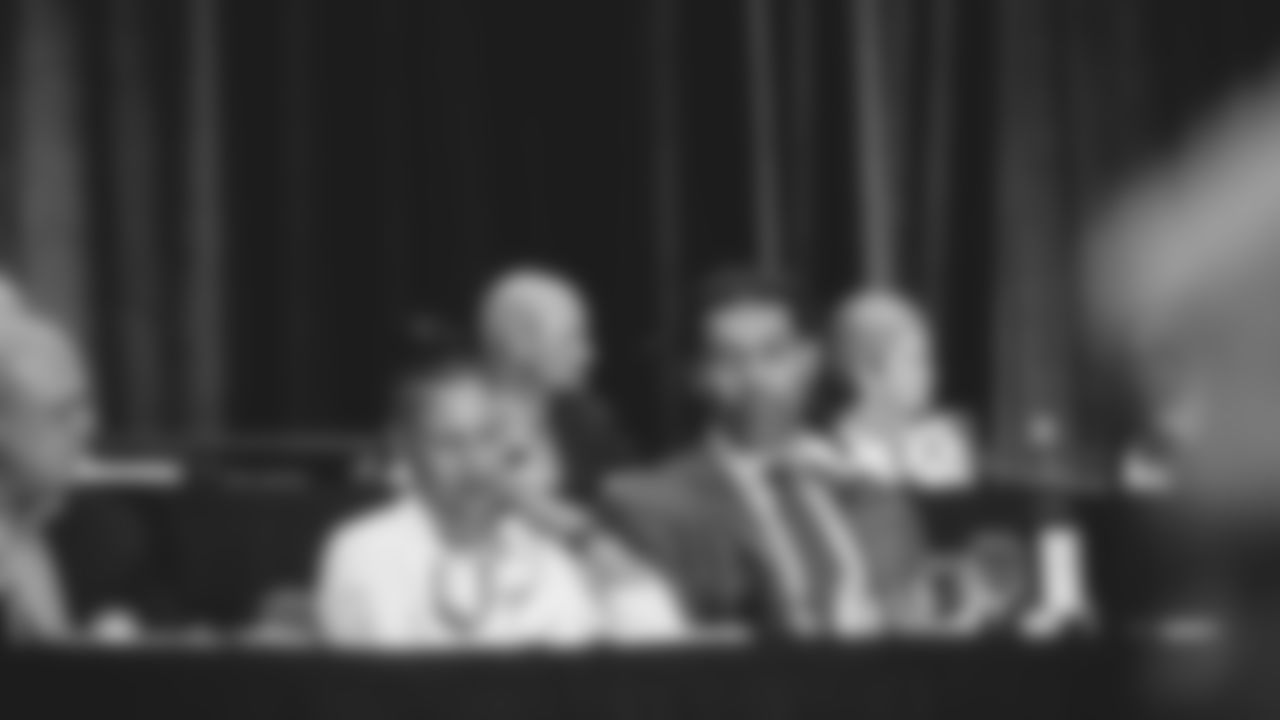Getting a spot on the team was one thing. Getting minutes was something different.
When you looked at his stat line, it doesn't jump off the page the way it did in football. In two seasons, he averaged 5.7 points and 3.7 rebounds a game. But those numbers came when he was a temp, while he was busy stacking up All-American honors and awards named after legends (Nagurski, Lombardi, Willis) in football.
So as they watched Peppers grind at practice when he didn't have to — he was there simply because he wanted desperately to be there — they kept seeing reasons to involve him.
Phil Ford was a legend at UNC before Peppers was even born, so he's seen plenty of players. But there were things he remembers about Peppers to this day beyond the obvious.
"He had all the things that you can't teach: size, strength, agility, touch," Ford began. "But he also had a great understanding of the game, what I call savvy. He understood. I mean to play in North Carolina, you know, we do a lot of different things offensively and defensively."
Ford then went into granular detail about all the options on a particular play, a laundry list of basketball terms that a layman can easily get lost in. But as he discussed back cuts and defensive assignments, the unspoken language of out-of-bounds plays, he said that it never seemed like a new language for a football player.
"He was able to pick up on all of that, and very fast," Ford said. And when one of the greatest point guards in the history of the game says that, it means something. "I know it usually takes kids a little while to pick up on that, but Julius picked up on it right away."
At UNC, the practices are intense because a high level is expected. That's the way Dean Smith built the program, so there was a very specific way players were expected to prepare. Even guys who were only basketball players would sometimes struggle with the level of precision coaches demanded, particularly in defensive drills.
Hanners, who coached hundreds of players in thousands of games in college and the NBA (coaching champions on both levels), remembered being amazed by how graceful Peppers was in those early practices in a way that few full-time basketball players were.
"I think what surprised me the most, what really just knocked me off my feet from the very first time I watched him, was how well he defended everyone," Hanners said. "I mean, he defended the post players like you would think because he's so strong. But we used to do these shadowing drills where there would be two screens on each side of the lane. And a guy would start in the corner, and take off and run over a double screen and then come back, and nobody on the team could shake Julius.
"We used to laugh. We said, you know, we can't wait to play somebody who's got a 6-3 or 6-4 guy that's really quick and is scoring a lot. We'll just put Julius on him and say, don't let him touch the ball. It was just incredible how quick his feet were, and I think that served him well in football.
"We were just in shock because, I mean, Vince Carter was really, really good at that, but I don't think he was a lot better than Julius Peppers, which is just bizarre."
That kind of defensive presence showed up in big spots, like the three blocked shots against Stanford in the Sweet 16 his first season, or the dozens of little things that you don't expect a part-timer to do during a run to the Final Four.
Those kind of amazed recollections are common when you get basketball guys talking about Peppers, because defensive ends aren't supposed to be able to do these things.
Phil Ford, of all people, commending someone's vision and grasp of the game is not something that just happens.
"He is something else," Ford said simply.
You could fill a book with the stories. Cota laughing when recalling Peppers going up to dunk on Carlos Boozer. Capel recounting the time his father Jeff, then an NBA assistant, tried to get Peppers to work out with the Charlotte Bobcats, and knowing he'd have fit in. Mixon, a man who knows more words than anyone you know, running out of them when talking about a random December game in Buffalo that no one else would remember. A million little stories.
"I just remember one game we were getting kind of pushed around a little underneath," Hanners began. "Coach Guthridge put Julius in, and all of a sudden, all that pushing around ended, and we started controlling the paint. He could do that."
So, for all those testimonials, it's reasonable to wonder if he could have done it at the highest level.




































